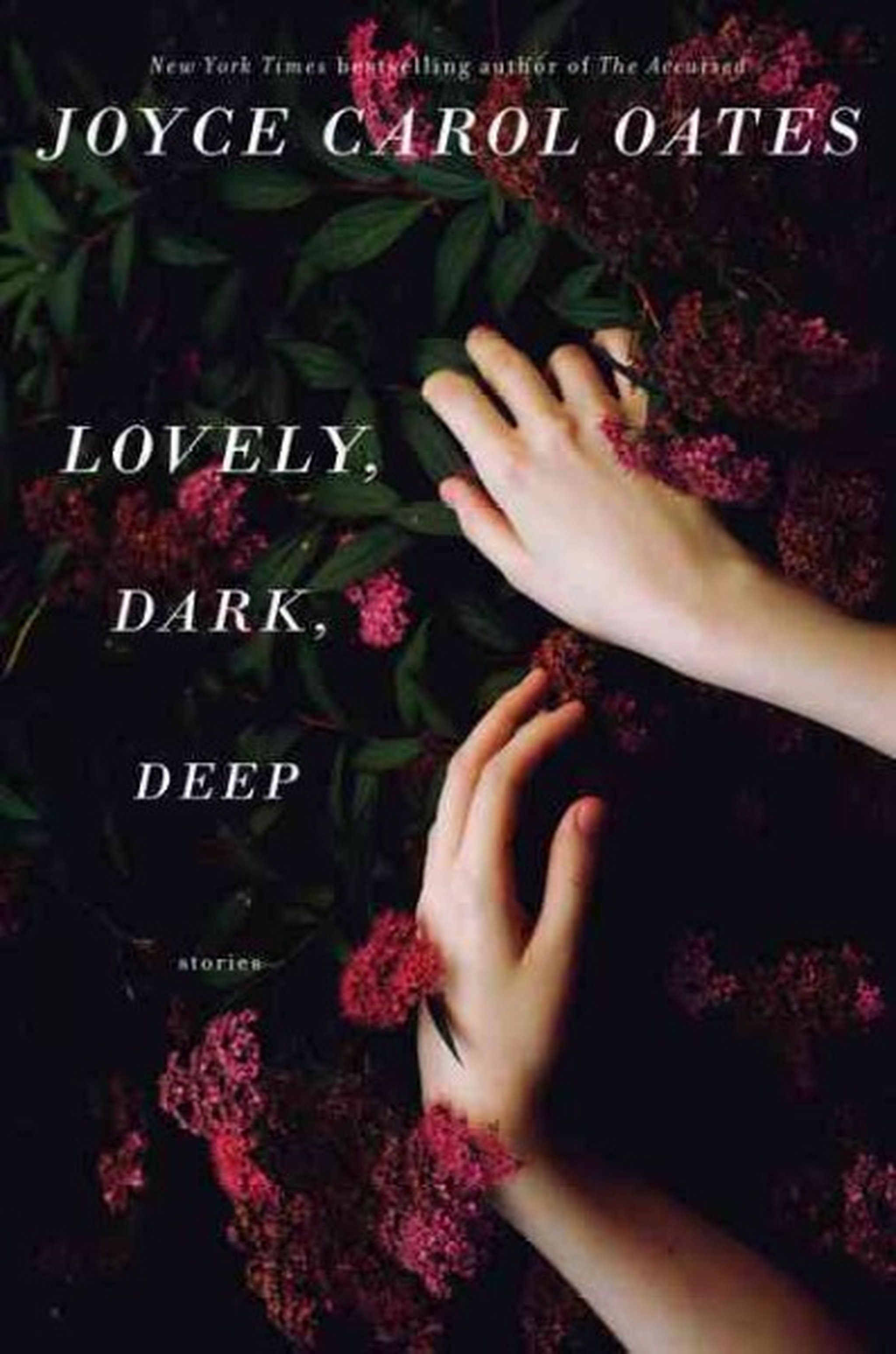Oates' Latest Story Collection Is 'Dark, Deep' And Marvelous
Norman Mailer, one of the most prolific American writers of the 20th century, may have compared himself to some of the heavyweights of modern literature. But Joyce Carol Oates is an entire sports complex, including the Olympic-sized pools and the locker rooms.
It's become a cliche to point out that Oates is an unnatural phenomenon of productivity — this past year or so, she's put out two novels, a quartet of novellas and two volumes of stories, the most recent of which is the 400-page collection Lovely, Dark, Deep. That is one hell of a lot of fiction, novel length and short. However, what matters is the quality of it all.
And Oates is a giant among us, as prolific as the worst of the writers who produce dreck and turn it into cash, but thoroughly wonderful and important. She writes about both men and women, ordinary people and professional people, Easterners and country folk, the unloved, those caught up in the web of first love, the married, and the bereaved, families with children, widows, the famous, the gifted but underrated, celebrities and those who toil away at their lives in obscurity. Where Balzac wanted to give his readers Paris in its entirety, Joyce Carol Oates has dared to give her readers an entire country — our own.
Look at this latest collection, containing a dozen stories and a novella. The opening piece focuses on the loving and delicate relationship between an adolescent boy and his ailing grandmother; the second story takes us on a California hike with a young woman and her older lover that leads to an apocalyptic encounter with a vicious canine, and with the life she's been leading. "It disturbed her," Oates recounts, in a volatile mix of discernment and rushing emotion, "that she was so detached from her family, her relatives and girlhood friends. ... She could feel the deadness seeping into her, the chill indifference." The incident with the monstrous dog jolts her awake.
In stories that follow, we become immersed in the neurotic loneliness of a woman in a hotel room in the Western desert, and the psychic terror of a Midwestern woman on her way with a boyfriend to have an abortion. A philandering Southern college president targets a famous visiting poet who has come to do a residency at his school. Oates gives us a pathetic adopted rich girl with a degrading tattoo, adopted by a wealthy New England family but on her way to oblivion, and she conjures up the ghost of a teenage New Jersey boy killed in a car wreck, who haunts the spot where he died. A haunted house in an upper-middle-class suburb becomes the obsession of a couple whose marriage is dying.
Each of these stories jolted me awake, like a bark from a monstrous dog. As did the title story, infamous since its magazine publication last year, about an attractive female poet who interviews Robert Frost at his Vermont country hideaway with disturbing results. Equally disturbing is the novella-length narrative about the quixotic life and uneasy death of a famous American novelist, as told by his desperate daughter.
All these varied stories make up a collection as alive and as enlivening as any of the earlier volumes in Oates' already distinguished body of work. "As Virginia Woolf had observed," she writes in one of the stories here, "there is so much more to be seen in a photograph than in the actual subject from which the photograph has been taken." That's true also for Oates' many stories. As for the art of it all, that visiting poet tells her group of students that poetry "is what frightens. It is rare, and worth waiting for." The great thing right now is that with Joyce Carol Oates, we never have to wait long.
Comments
You must be signed in to leave a comment. Sign In / Register
Please keep your community civil. All comments must follow the NPR.org Community rules and Terms of Use. NPR reserves the right to use the comments we receive, in whole or in part, and to use the commenter's name and location, in any medium. See also the Terms of Use, Privacy Policy and Community FAQ.







